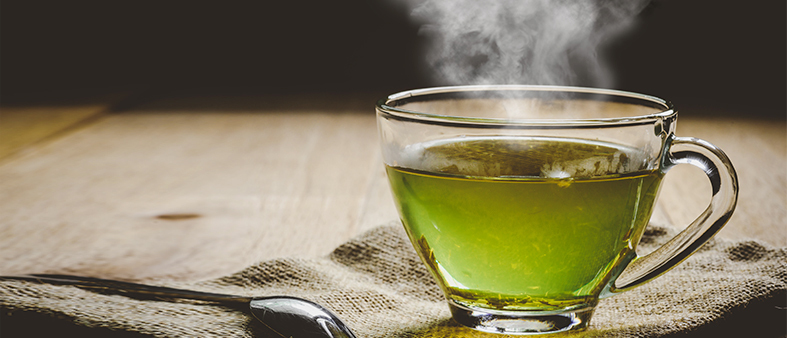
10 Natural Japanese Home Remedies and Folk Cures To Try When You’re Sick
These days, wellness is at the forefront. While we’re all trying our best to stay healthy and keep each other safe, it can be easy to forget about the common sicknesses that everyone experiences during the cold winter months. With that being said, natural medicines and herbal cures have been prevalent in East Asian culture for centuries. If you’re looking for a few easy ways to keep a common cough or cold at bay, look no further than this list of helpful Japanese home remedies!
1. Green Tea
Likely the most well-known and accessible on this list, green tea is known to be helpful in curing almost any ailment. Pure green teas are full of antioxidants and bioactive compounds, which are great for boosting your immune system and keeping your mind sharp. Green tea is also known to be a natural appetite suppressant, making it a great way to naturally lose weight. Some studies have even shown that green tea is linked to preventing certain cancers, so drinking a cup a day is a great way to stay healthy!
2. Yuzu Tea
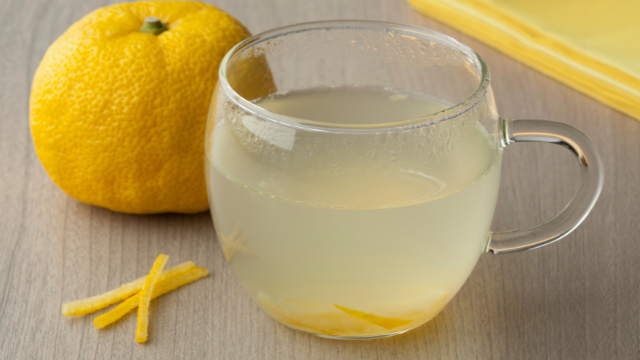
Similar in size, shape, and color to a lemon, yuzu are citrus fruits that are native to East Asia and, consequently, are featured in loads of Japanese herbal remedies. The next time you’re at your local Asian market, check to see if you can find yuzu that have been pressed into a jam-like paste – adding this to a cup of hot water will create a tea that will combat even the most stubborn cough! This combination has been used since ancient times, making it a tried-and-true staple of Japanese home remedies.
3. Ginger-Honey Tea
An easy and tasty option, ginger and honey is a time-tested combination that will have you feeling better in no time. When combined and drank as a tea, the honey soothes your throat and adds cozy sweetness, while the ginger’s antiseptic qualities kill any harmful bacteria. The calming warmth and taste have also been said to provide relief for persistent headaches and migraines. The next time you’re feeling the telltale signs of a cold, try this miraculous combination for instant relief!
4. Umeboshi

More popular in Japan than in the West, umeboshi are traditional Japanese pickled plums. Though likely not suited to everyone’s tastes, umeboshi are commonly used in Japan as a home remedy for nausea, morning sickness, or even a bad hangover. Helpful both on their own or added into a tea or soup, umeboshi can be consumed in a number of ways, making them a versatile and helpful addition to anyone’s medicine cabinet.
5. Tamago-zake
Translating literally to “egg alcohol,” this remedy may not be the most appetizing on the list, but has been a staple cold and flu cure in Japan for centuries. By heating a raw egg with sake and honey, this thick and creamy drink is meant to be consumed before bedtime to eliminate colds and provide restful sleep. The sake can even be boiled enough to evaporate the alcohol, making it suitable for children.
6. Hachimitsu-Daikon
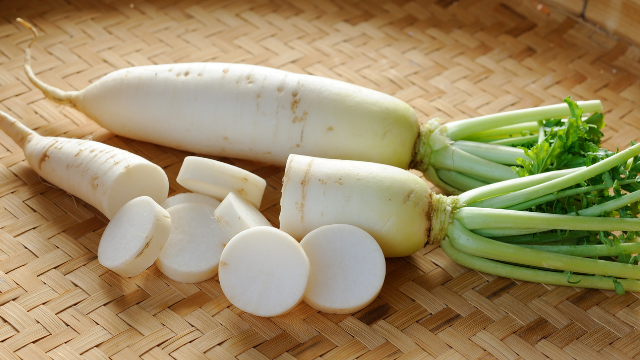
If you’re looking for a cozy remedy with a healthy dose of Vitamin C, try combining honey with daikon, a Japanese radish with several helpful healing properties. Daikon contains certain enzymes that help your body eliminate mucus, making it helpful against stubborn coughs or stuffy noses. Chopping the daikon, covering it with honey, and letting it sit for a few hours will create a syrup that can be taken directly or infused with hot water for a soothing tea. Taking the syrup two to three times a day will give you the boost you need!
7. Slicing and Sniffing an Onion
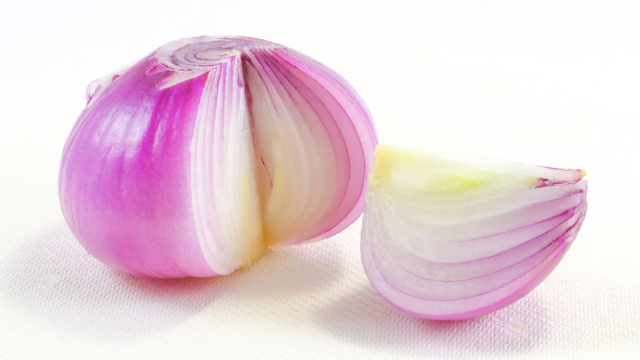
If you’re running low on resources – or just want a temporary fix to a stuffy nose – sniffing an onion is a common yet unconventional solution. Though there’s little to no science behind it, the strong scent of the onion is sure to stimulate your senses and energize you, even if it’s in an unpleasant way. This is one of those solutions you should try as a last resort when the cold and flu medicine hasn’t quite kicked in yet.
8. Okayu
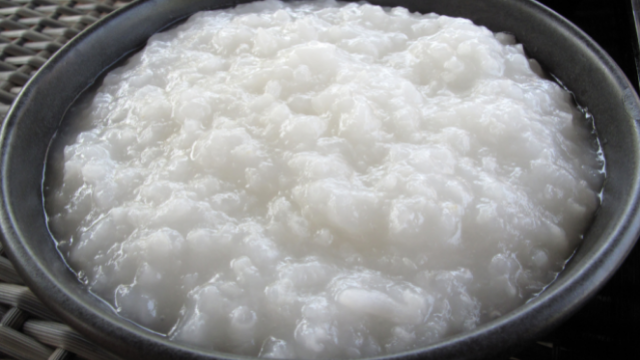
Though technically not a home remedy, this Japanese dish might be miraculous for when you’re sick and can’t hold down certain foods, or if you’re not in the mood to cook. Okayu is a thick, porridge-like mix of rice and water, and can be made easily with a rice cooker or stovetop. Though the bland taste will be easy to hold down if you’re not feeling well, adding seasonings can make this simple dish a little more interesting.
9. Scallion Miso Soup
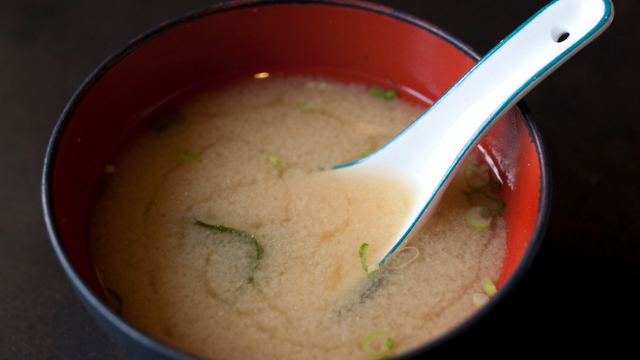
Warm and delicious, miso soup is actually an easy and effective cure for a nasty cough or cold. Easily made by combining miso, scallions, and hot water, the tasty broth contains lots of protein and vitamins, which will help you feel better fast. Adding garlic to the mix will work as an expectorant, which can help clear out mucus from the nose or chest. Nutritional value aside, this simple and delicious soup might be just what you need to survive the winter!
10. Zosui

A traditional Japanese dish made for those who aren’t feeling well, zosui combines miso with veggies, rice, or noodles to create a warm, hearty meal that will give you a boost of nutrients while keeping you cozy throughout the winter. With the simple base ingredients, you can add virtually anything to a zosui dish, including seafood or meat. Usually mild in flavor, it’s the perfect thing to eat if you’re feeling under the weather, but still want to eat a tasty, fulfilling dish.
East Asian Herbal Medicines and Home Remedies
Having been a staple of East Asian medicine for thousands of years, home remedies have cemented their place in Japan’s cultural landscape. The fact that these easy and effective cures have been maintained for generations is impressive, and their success has made them amazing supplements to the medicine we use today. The next time you’re feeling ill, try testing out some of these home remedies for a cozy way to get better fast!
Always Consult Your Doctor
The traditional remedies listed above are ones that have been passed down for generations for symptom relief and to aid in healing, but they are not a substitute for professional medical advice. Always consult your doctor or other qualified healthcare provider with any questions you may have regarding medical treatment.
Your Prescription is Pimsleur

Pimsleur All Access provides unlimited access to Japanese plus 50 additional languages across unlimited devices for four family members.
Give us 30 minutes a day and we’ll have you speaking a new language in no time. That’s all it takes for you to confidently inquire about prices, order dinner, ask for (or offer) directions – in your new language – with a near-native accent. Just listen, respond and learn to converse in … French while commuting … German while jogging … Spanish while cooking. It’s really that portable and flexible.
1 Comment for "10 Japanese Cold and Flu Remedies To Weather Winter"